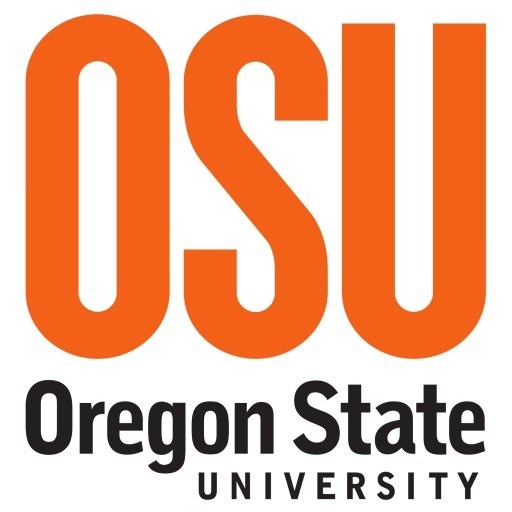Photos of university / #uniofeastanglia
The Bachelor of Science in General Science at the University of East Anglia offers a comprehensive and interdisciplinary approach to understanding the fundamental principles that underpin the natural world. This innovative programme is designed for students who seek a broad scientific education, encompassing diverse fields such as biology, chemistry, physics, mathematics, and environmental science. By choosing this course, students gain the flexibility to explore various scientific disciplines, enabling them to develop a well-rounded scientific perspective and critical thinking skills essential for addressing complex real-world challenges. The programme combines theoretical knowledge with practical laboratory skills, encouraging active engagement through experiments, projects, and fieldwork, which are integral components of the curriculum. Students will have access to state-of-the-art facilities and laboratories, supported by expert faculty members dedicated to mentoring and guiding them throughout their academic journey. The course is structured to foster both analytical and problem-solving abilities, preparing graduates for a wide range of careers in research, education, industry, and consultancy, or for further study at postgraduate levels. The interdisciplinary nature of the programme also equips students to contribute effectively to environmental sustainability, technological innovation, and scientific policymaking. Across the duration of the programme, students will benefit from a combination of lectures, seminars, group work, and independent research, all aimed at cultivating a versatile skill set that is highly valued across many sectors. The university’s supportive academic environment, alongside opportunities for internships and collaborative projects, ensures that students graduate with the confidence and competence to succeed in a rapidly changing global scientific landscape. Emphasizing scientific literacy and communication, the programme prepares graduates to articulate complex scientific concepts clearly and effectively to diverse audiences. Overall, the Bachelor of Science in General Science at UEA offers a flexible, engaging, and rigorous education for aspiring scientists and inquisitive minds eager to explore the interconnectedness of natural phenomena and contribute to scientific progress.
Detailed Course Facts
Application deadline We're happy to accept students right up to when our courses begin, as long as there are places available Tuition fee- GBP 14995 Year (EEA)
- GBP 14995 Year (Non-EEA)
Tuition fees do not include:
- enrolment fee: an additional charge of £150 per academic programme (to be charged upon confirmation) ;
- textbooks and other learning materials: an additional charge in the region of £180 per academic course (three term), £240 per academic course (four term).
- English
Course Content
Course modules:
Academic English and Study Skills
- Improve and develop your skills in academic reading, writing, listening and speaking. By doing practical tasks you will develop the skills to read and interpret academic texts and write academic assignments.
Foundation Biology
- This module covers the basic principles of organisation in living systems from biochemistry, genetics and cells, to whole organisms, populations and ecosystems.
Foundation Chemistry
- You'll explore various principles of organic, inorganic and physical chemistry including atomic structure and chemical bonding, synthesis of organic compounds, acids and bases, reaction kinetics and thermodynamics.
Foundation Physics
- Topics covered include key physical quantities, kinematics, forces and collisions, waves, electricity, radioactivity and the nucleus, work, energy and power.
Mathematics for Science
- Provides you with an understanding of the key mathematical topics relevant to the sciences, including trigonometry, differential and integral calculus, logarithms and probability and statistics.
Plus TWO of the following options:
Applied Physics
- You'll use your knowledge of forces and thermodynamics and apply these to weather and climate. You'll also further your understanding of forces and waves and apply it to geophysical sciences.
Further Chemistry
- An exploration of the principles of electrochemistry, analytical chemistry and spectroscopic techniques.
Human Physiology
- This module introduces you to some of the main organ systems of the human body, namely the circulatory, respiratory, lymphatic, immune, digestive and renal systems. You will learn basic anatomy and about how each system works on its own and in relation to other systems in the body.
Advanced Mathematics
- You will gain an understanding in a number of topics including counting techniques, concepts of arithmetic and geometric series, vectors, complex numbers and their algebra, trigonometry and transcendental functions, linear algebra and numerical methods for solving equations.
How will I be assessed?
You will be assessed in each module. Assessment is designed to help you build on your success and meet the requirements for entry to the first year of a degree. Marks from the International Foundation programme do not count towards the final degree but they help the University assess your abilities in your chosen field of study.
You are assessed by a combination of examination and course work, which may include:
- essays
- reports
- practicals
- exercises
- group and individual research projects
- portfolios
- oral presentations
- seminar discussions
- class tests
- problem solving exercises
Audience
If you have completed secondary school education in your home country, the International Foundation programme provides academic preparation for first year entry and ensures that you meet the minimum English language requirement for entry to your chosen undergraduate degree programme. In some circumstances you may be able to enrol on the Foundation programme in order to change your specialist subject.
Requirements
Academic requirements
You need to have completed 12 years of schooling (or the local equivalent to meet the same standard) with very good grades.
For information about country-specific entry requirements please contact us.
English requirements:
Four term programme: IELTS 4.5 (with a minimum of 4.0 in any subskill) or equivalent.
Three term programme: IELTS 5.0 (with a minimum of 4.5 in any subskill) or equivalent.
If you do not meet the minimum English language entry requirements, you can apply for English for University Study.
The Centre accepts other Secure English Language Tests (SELT) including Pearson PTE. Please contact us for further details.
Age:
17 years and above.
All students commencing courses on a published September start date must be 17 years old by 31st December of that calendar year. For all other start dates, students must be 17 years old on the published start date of the course.
Work Experience
No work experience is required.
Related Scholarships*
- Academic Excellence Scholarship
"The Academic Excellence Scholarship can provide up to a 50 % reduction in tuition per semester. These scholarships will be renewed if the student maintains superior academic performance during each semester of their 3-year Bachelor programme. The scholarship will be directly applied to the student’s tuition fees."
- Access Bursary
Bursary for UK students all subjects where the variable tuition fee rate is payable.
- Alumni Bursary
Alumni Bursary for UK Undergraduate students
* The scholarships shown on this page are suggestions first and foremost. They could be offered by other organisations than University of East Anglia.
Funding
Scholarships
High achievement is important to INTO and its students. We reward the academic success of the best students and in 2010 gave over £1m in scholarships that helped fund their studies.
If you have a strong academic record you will have the opportunity to apply for an INTO scholarship. These recognise those that have worked hard to join us and have the potential to go on to study at the highest levels. Every study centre offers scholarships and each application is considered with great care.
The Bachelor of Science in General Science at the University of East Anglia offers a comprehensive foundation in the core principles of science, providing students with a versatile and interdisciplinary education. The programme is designed to equip students with a broad understanding of biological, chemical, physical, and environmental sciences, fostering critical thinking and problem-solving skills applicable across numerous scientific disciplines. Throughout the course, students engage with a diverse curriculum that includes modules in biology, chemistry, physics, mathematics, and environmental science, enabling them to develop a well-rounded scientific literacy.
The programme emphasizes practical laboratory work, field studies, and research projects, giving students hands-on experience and encouraging experimental investigation. This experiential learning approach aims to prepare graduates for careers in research, industry, environmental consultancy, healthcare, education, and science communication. The university's state-of-the-art laboratories and research facilities provide an excellent environment for scientific exploration and innovation.
Students also benefit from the university’s strong connections with industry and research institutions, which enhance employability through internships, placements, and collaborative projects. The programme includes opportunities for developing key transferable skills such as data analysis, scientific communication, teamwork, and independent learning. The curriculum is often flexible, allowing students to tailor their studies according to their interests and career goals.
The University of East Anglia's commitment to research-led teaching ensures that students receive education that is current and aligned with the latest scientific advancements. Additionally, the program encourages interdisciplinary understanding, enabling students to integrate concepts from different scientific fields to address complex real-world problems. Graduates of the General Science BSc are well-prepared for postgraduate study or entering a variety of scientific and related careers, distinguished by their broad scientific competence and adaptable skill set.
Overall, the programme provides a solid academic foundation in general science, combined with practical experience and professional development opportunities, making it an excellent choice for students seeking a versatile science degree with wide-ranging career prospects.





